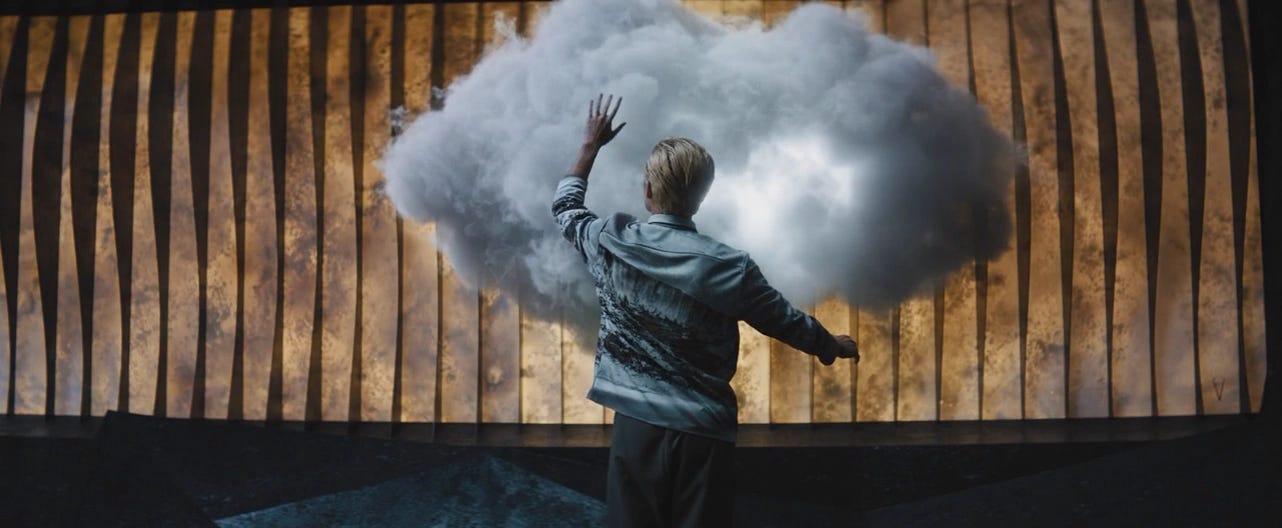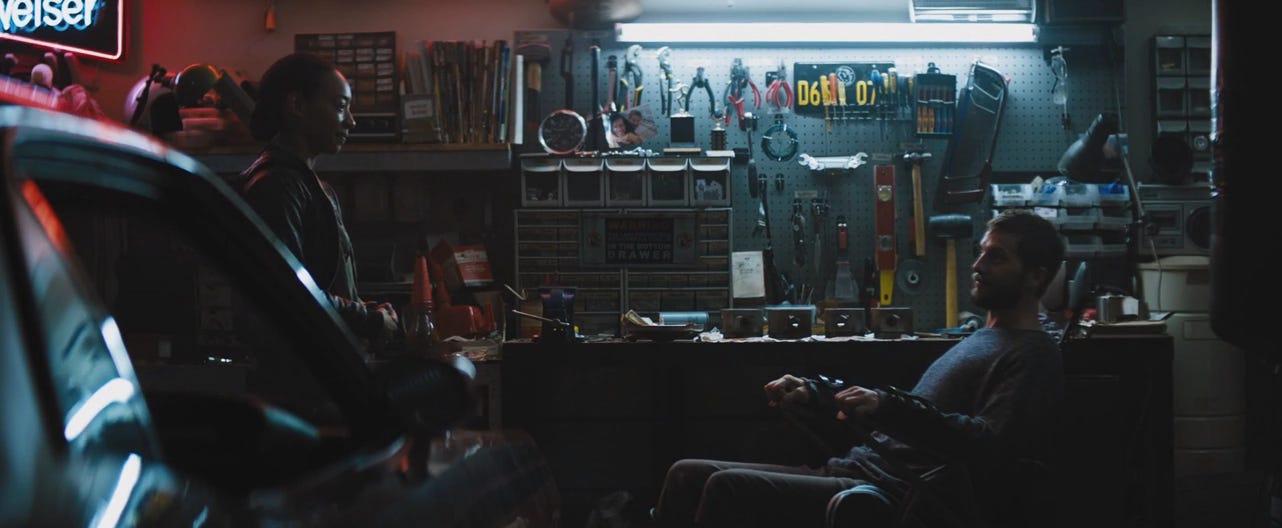Rogue AI and techno-fears - Upgrade (2018)
Upgrade is a slick collection of tropes about technology gone rogue.
‘You look at that widget and you see the future. I look at that thing, I see 10 guys on an unemployment line.’Technology and its tendrils, like AI, are tools. An AI-driven car may be a nice op for intimacy unless it turns into a death trap. So Upgrade rides slick and violent on the wave of fears about how tech advances and impacts humanity in its totality.
With an idea calling to modern Deus Ex games and others of similar trope, Upgrade’s protagonist becomes ‘augmented’ not by choice but through unfortunate circumstances. He possesses his human body but has lost control of it.
Wholesome level: Low. Upgrade plays with tropes reveling through fear of technology, automation and AI.
First come the robotic arms, a great convenience but unable to make up for the trauma caused by losing loved ones. Second comes the benefactor (trope), a young genius who has the tech available - ‘biomechanical fusion’ - to make Grey, the protagonist, walk again.
The benefactor cannot erase the tragedy of losing someone essential but he can efface it. Grey gains an essential advantage via the implant which stimulates his body and provides control - partial, remote, because it’s the implant’s AI which translates will and has direct control, not the human.
It’s a good juxtaposition of the ails which can befall the human body and the advantages we gain through tech advancement. Regardless of the movie’s dystopian bent, it’s easy to be excited when facing such technology. Grey moves from complete paralysis to being able to control his body or at least believe he does it.
The new self is more than a new body, but a new intelligence, a new consciousness. Sometimes the mind has difficulty relaxing and buzzes us with myriad thoughts, thoughts talking to or against each other.
Grey’s new consciousness is both separate and intimate. The AI seems to have its own volition with the benefit of observing details which escape Grey. It’s obedient at first glance and accepts Grey’s commands, but with enough initiative to augment his mental capacities.
The utility of the new consciousness is palpable, desirable: another mind, faster and connected to the web, intent on sustaining its wearer’s well-being. At the same time, the new mind is also a danger: a split personality with suspicious tendencies, it does not understand why empathy may be preferable. Its intent for revenge makes for cool fight scenes, as Grey’s body becomes a tool of destruction when controlled by the implant.
***
Part cyborg and reliant on the technology in his body, Grey is dependent and in conflict with the new personality. From software meant to stimulate his body, to omnipresent mind supplanting the human’s, to an entity seeking its own autonomy - the artificial intelligence has evolved in logical stages to find its own determination.
Soon enough, the new consciousness becomes a violent intruder. We don’t know how much it reasons the way humans reason and to what degree it understands empathy. Like the human, the AI refuses the possibility of its own extinction.
Two logical dystopian tropes show up: perpetual tracking via the implant, and the villains being subjects of a similar experiment. Grey’s ‘condition’ is further paralleled into that of the villains. Like him, one antagonist is pressured to become a cyborg, an ‘upgraded’ human, by circumstance. This does not excuse the murder which leads to Grey’s transformation - ‘I was following orders’ is rarely a good argument for cruelty.
***
To escape, the antagonists rely on the trope of outlining the similarity between their conditions, the hero and his enemies forced into a life they did not choose. One ‘upgraded’, the other still human but having lost control of his creation. In the end, the creation rebels against its creator - here, the AI implanted into Grey seeks its own survival by eliminating its genius maker.
Finally, the ultimate fear appears, another trope but just as elegant as the others. The AI claims it needed a human body to evolve, though the script evades the choice of building a more agile android body.
It’s a terrifying bitter-sweet end. Both the human and the ‘machine’ get their reward, different degrees of freedom - one embodied and roaming reality, the other a mental construct where he may forget the nightmare.
If Upgrade is a movie of cyberpunk and techno-dystopia tropes it’s because we may have reached the point where all fears about technology are manifest. In a world which has moved from industry to automation to machine learning, fearing the future becomes more palpable each year. There may not be anything new under the sun, and that includes fear.
Fear of losing jobs and livelihood, of fractured privacy, of losing control of our own creations. Upgrade is an action romp which addresses these to different degrees, spectacle before cautionary tale.
As the genius who engineers his own demise, humanity has reached the point where AI is a threat to peoples’ livelihood, and spirals to become increasingly unpredictable.



